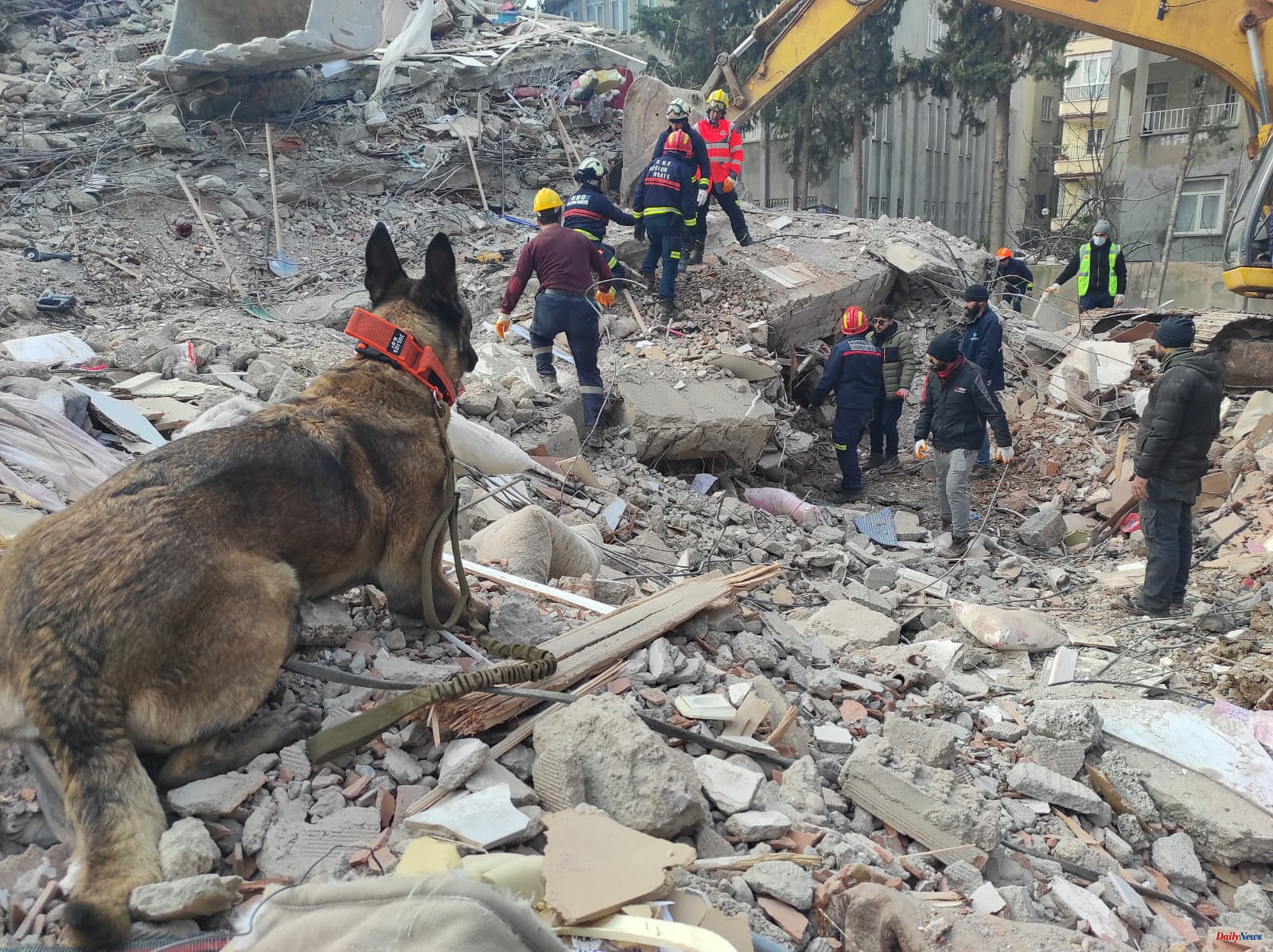Turkish President Tayyip Erdogan has vowed to press ahead with rescue and recovery efforts more than a week after a powerful earthquake ripped through his country and neighboring Syria.
The total death toll in Turkey and Syria has passed 41,000, with many survivors enduring near freezing winter temperatures, having been made homeless by the devastation in cities in both countries.
"We will continue our work until we remove the last citizen left under the collapsed buildings," Erdogan declared late on Tuesday after a cabinet meeting held at the headquarters of the Disaster and Emergency Management Authority (AFAD).
The evaluation of the damage in the destroyed buildings will conclude in a week and the reconstruction will begin in a few months, according to progress. "We will rebuild all houses and workplaces destroyed or uninhabitable by the earthquake and hand them over to their rightful owners," he added. More than 105,000 people have been injured in the quake, and more than 13,000 remain hospitalized.
Overnight, a 77-year-old woman named Fatma Gungor was pulled alive from the rubble of a seven-story apartment block in the city of Adiyaman, some 212 hours after the first earthquake, media reported.
Wearing an oxygen mask, covered in a gold foil blanket and strapped to a stretcher, Gungor was carried by rescue teams from the ruins of the building to a waiting ambulance, footage from state broadcaster TRT showed.
Later, Gungor's relatives hugged the rescue team, made up of soldiers and members of the AFAD disaster management authority.
Another nine survivors were rescued in Turkey on Tuesday, while relief efforts focused on helping people who are now fighting the cold without shelter or enough food.
Erdogan has acknowledged problems in the initial response to the 7.8 magnitude earthquake that struck Turkey in the early hours of February 6, but has said the situation is now under control.
"We are facing one of the biggest natural catastrophes not only in our country, but also in human history," Erdogan said.
Also among those rescued on Tuesday were two brothers aged 17 and 21 taken from an apartment block in Kahramanmaras province. In statements to the Turkish public channel TRT Haber, one of them has told how they lived through the moment of the earthquake just before going to work. "The walls upstairs collapsed on me. If we hadn't found the phone, we wouldn't be living in this moment. Since I usually play sports, I have protein powder in my drawer," he explains.
According to his account, during these days both he and his brother have been fed protein powder and their own urine. "Most of the time we were sleeping," he explains.
A 42-year-old woman has also been rescued in the last few hours from a building in Kahramanmaras, almost 222 hours after the quake.
The UN authorities have declared that the rescue phase is coming to an end, and that the focus is now on housing, food and schooling.
"People are suffering a lot. We asked to receive a tent, help or something, but so far we haven't received anything," said Hassan Saimoua, a refugee staying with his family at a children's playground in the Turkish city of Gaziantep, in the southeast of the country.
Saimoua and other Syrians had taken refuge in Gaziantep from the war in their country. Now homeless from the earthquake, they have set up makeshift tents in a children's playground out of plastic sheeting, blankets and cardboard.
"The needs are enormous and are increasing by the hour," said Hans Henri P. Kluge, director of the World Health Organization for Europe. "Some 26 million people in both countries need humanitarian aid."
"There is also growing concern about emerging health issues related to cold weather, hygiene and sanitation, and the spread of infectious diseases - with vulnerable people especially at risk."
According to the criteria of The Trust Project












